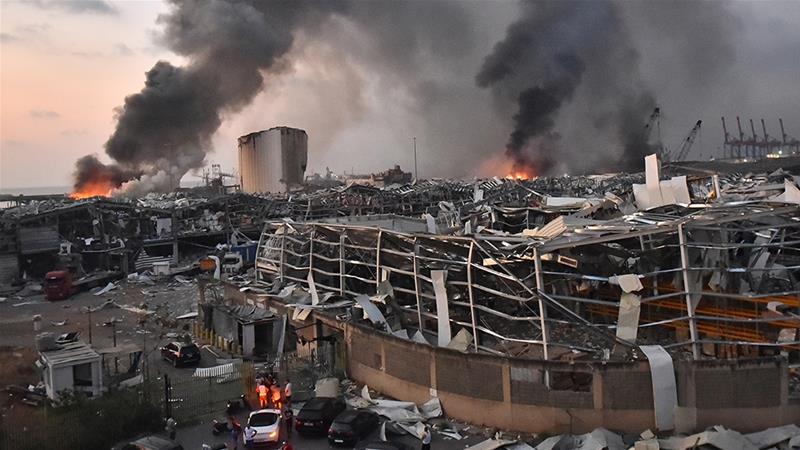10 August??? I called Ed this morning (14 August), Ed is a 96-year old vet who had served at Okinawa during that time. He was in our local VFW chapter, but is now in a senior care facility near his children. He recalled that all hands had gotten the word on the tenth that Japan had offered to surrender. There was a lot of celebration. He said the wild firing into the air was a bad mistake as several men were killed and wounded.
The US accepted on the 12th of August. The only exception to the Japanese
offer was that Hirohito could only remain
in a
purely ceremonial role and NOT as Japan's 'Heavenly Sovereign'. There was a delay in Tokyo for debate about acceptance of Hirohito's eclipse - or continuation of the war. So on 13 August (14 August in Japan) B29s from Tooey Spaatz Strategic Air Force Pacific resumed air raids attacking Iwakuni, Osaka, Tokoyama, Kumagaya, and Isesaki. The PM, the Navy Minister, and the Minister of Foreign Affairs all opted for surrender. The Army was more intransigent, or at least some firebrands there thought they could get away with a coup and continue the war. They murdered a Lieutenant General who would not go along with them. Hence the Kyūjō incident.
But wiser heads prevailed. On the 14th (15th in Japan) Hirohito announced the surrender via radio to all in his nation so that they would know it was his personal decision to capitulate. He stayed in that ceremonial Emperor role for another 44 years. A good movie was made about the decision and the coup. Back in 1967 the great Kihachi Okamoto directed "Japan's Longest Day" aka "The Emperor and the General". Some dramatic license like all cinema, but well presented.
https://en.wikipedia.org/wiki/Ky%C5%ABj%C5%8D_incident
https://www.bestmoviesbyfarr.com/movies/japans-longest-day/1967
http://www.midnighteye.com/features/a-tribute-to-kihachi-okamoto/
There is a remake out titled "The Emperor in August" released five years
ago on the 70th anniversary. I have not seen it yet but hope too soon.
https://www.japantimes.co.jp/culture/2015/08/05/films/complex-portrayal-emperor-hirohito/
I also called today and chatted with a elderly former Woman Marine who was stationed at Treasure Island in San Francisco Bay as a supply clerk during the war. She couldn't remember a lot. Said she was on duty when the announcements were made so missed all the partying in downtown Frisco.
The formal surrender of course did not take place until two weeks later on board the U.S.S. Missouri on 2 September.
https://americanhistory.si.edu/collections/search/object/nmah_1303405
UPDATE: Much has been said about the estimated casualties if the Invasion of Japan, Operation Downfall, had gone ahead. In April 1945, a Joint Chiefs of Staff planning
paper assessed possible casualties based on experience in both
Europe and the Pacific given a troop list of 766,700 men and a 90-day
campaign. Based on the "Pacific Experience" JCS projected that the US Sixth Army could be expected to suffer 514,072 casualties (including 134,556 dead and missing). There were three problems with that this assessment: 1] it only included casualties up to X+90 on Kyushu and not for the later invasion of Honshu on the Kanto Plain; 2] it did not include personnel losses at sea from Japanese air attacks; and 3] Japanese were easily
able to accurately predict the Allied invasion plans and thus tripled their defenses on Kyushu from what the JCS estimates had been based on. There were other estimates, MacArthur low-balled it at 105,000 total casualties but again that was only for Kyushu. Mac had made a habit of underestimating enemy strength. He did it in Luzon twice, here, and later in Korea.
Senior Navy admirals were against the invasion of the home islands. This was based on their experience at the lengthy and costly Okinawa Campaign where 368 Allied ships were damaged while another 36 were sunk, and the 5000 Navy dead exceeded Army KIA and USMC KIA. And probably based also on their experience at Iwo where Kamikazes sank an escort carrier, severely damaged a fleet carrier, and also damaged another escort carrier, an LST, and a transport. They preferred a blockade with continuation of a conventional bombing campaign. It might take longer but would save a lot of blood.
The Navy brass were also against the dropping of A-Bombs on Hiroshima and Nagasaki. According to Truman, Admiral Leahy called it "the biggest damn fool thing we have ever done". Admiral King called the rationale that the bomb would save American lives misplaced, because if Truman had been willing to wait a blockade would have "starved the Japanese into submission". Admiral Nimitz considered the bomb "somehow indecent, certainly not a legitimate form of warfare". Admiral Halsey, using military reasoning instead of humanitarian concern said "It was a mistake ever to drop it. Why reveal a weapon like that to the world when it wasn't necessary."
UPDATE#2:
Ahead of the surrender, he had to choose between two conflicting orders – one by McArthur instructing the fleet to allow Japanese officials to fly to Tokyo, and another from his captain, ordering him to blow them out of the sky. His Dad's account:
“I relieved the watch in the combat information center. As was routine I just read all the dispatches that had come in since the previous watch. And one of them was a dispatch from General MacArthur’s headquarters in the Philippines saying that if we intercepted any Japanese transport planes that were flying a red pennant from the tail of the fuselage that we were to let the planes through, I presume because they were flying the Japanese generals from China to Japan to receive the surrender. Anyway, we were to let this plane through."


